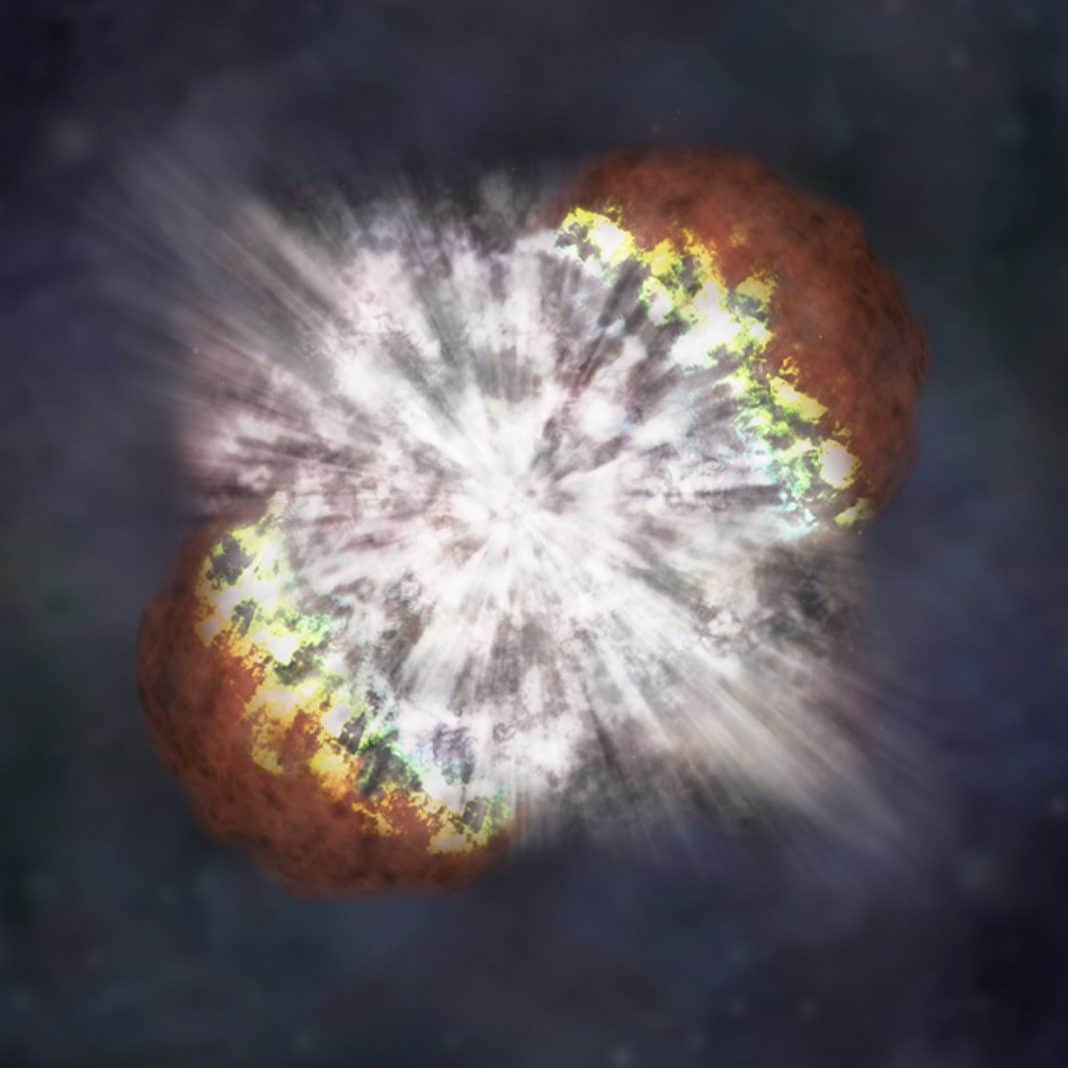Astronomers from the Australian National University have captured never-before-seen photos of an exploding giant star, 100 times bigger than the sun.
The imagery of the supernova shows a powerful burst of light as a shockwave travels through the dying star moments before it detonates.
ANU astronomer Patrick Armstrong says the event – known as the shock cooling curve – provides clues about what type of star caused the explosion.
“This is the first time anyone has had such a detailed look at a complete shock cooling curve in any supernova,” he said on Thursday.
“We are particularly interested in how the brightness of the light changes over time prior to the explosion.”
The ANU team captured the “major discovery” using NASA’s Kepler space telescope.
“Because the initial stage of a supernova happens so quickly, it is very hard for most telescopes to record this phenomenon,” Mr Armstrong said.
ANU used the new imagery to create a model that helped them identify the exploding star that caused the supernova.
They believe it is most likely a rare yellow supergiant.
Astrophysicist Brad Tucker said astronomers across the world will be able to use the new model, known as SW 17, to identify other stars that turn into supernovas.
Supernovas are the biggest explosion that humans have ever seen, according to NASA.
Each blast is the extremely bright, super-powerful explosion of a star.
They are important because they are believed to be responsible for the creation of most of the elements found in our universe.
Researchers are keen to understand supernovas because they unlock clues about where the elements that make up our universe come from.
ANU astronomers and an international team of researchers used imagery captured by the Kepler telescope in 2017 before it was discontinued.
AAP



